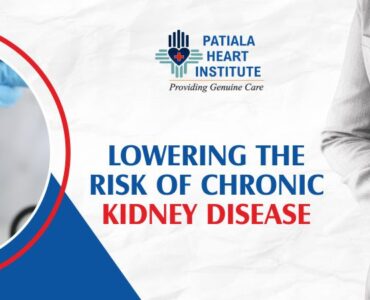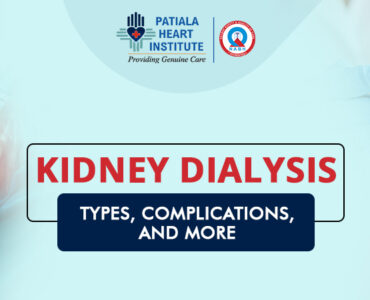The kidneys are vital organs that filter waste products from the blood, regulate blood pressure, and balance electrolytes. However, kidney dysfunction, a condition where the kidneys lose their ability to perform these functions efficiently, is becoming increasingly common. According to global health statistics, millions of people suffer from chronic kidney diseases, and a significant number are at risk of progressing to renal failure.
Preventing kidney dysfunction is crucial, as early intervention can slow down or even halt the progression of the disease. This blog will explore how lifestyle changes can make a significant difference in preventing kidney dysfunction, the symptoms of kidney dysfunction to watch out for, and the available kidney dysfunction treatment options.
Understanding Kidney Dysfunction
Kidney dysfunction, also known as renal insufficiency, occurs when the kidneys adequately filter waste products and excess fluids from the blood. This condition can lead to an accumulation of toxins in the body, causing various health issues. The severity of kidney dysfunction can range from mild to severe, with the latter often leading to renal failure stages that require intensive renal failure treatment.
Kidney dysfunction is often classified into two categories:
- Acute Kidney Injury (AKI): A sudden and temporary loss of kidney function, often reversible with prompt treatment.
- Chronic Kidney Disease (CKD): A gradual loss of kidney function over time, often irreversible and progressing to end-stage renal disease if left untreated.
Causes of Kidney Dysfunction
Several factors can contribute to kidney dysfunction, including:
- Diabetes: High blood sugar levels can damage the kidneys’ filtering units over time.
- Hypertension: Uncontrolled high blood pressure can harm blood vessels in the kidneys.
- Glomerulonephritis: Inflammation of the kidney’s filtering units, leading to impaired function.
- Polycystic Kidney Disease: A genetic disorder causing cysts to form in the kidneys.
- Recurrent Kidney Infections: Frequent infections can cause scarring and kidney damage.
Understanding the underlying causes is the first step in preventing kidney dysfunction. However, lifestyle changes are crucial in minimizing the risk and managing the condition.
Symptoms of Kidney Dysfunction
Early detection of kidney dysfunction is vital for effective treatment and prevention of progression. The symptoms of kidney dysfunction can be subtle and often mistaken for other health issues. However, recognizing these symptoms early can make a significant difference in managing the condition. Some common symptoms include:
- Fatigue: As kidney function declines, waste products start accumulating in the blood, leading to feelings of tiredness and weakness.
- Swelling: The kidneys’ inability to eliminate excess fluids can cause swelling in the legs, ankles, and feet.
- Changes in Urination: This can include increased or decreased urination, dark-colored urine, or blood in the urine.
- Shortness of Breath: Fluid buildup in the lungs can cause breathing difficulties.
- Nausea and Vomiting: Accumulation of toxins can lead to gastrointestinal issues.
- Muscle Cramps: Electrolyte imbalances due to kidney dysfunction can cause muscle cramps and twitches.
If you experience any of these symptoms, it’s essential to seek medical advice immediately. Early diagnosis can prevent the progression of kidney dysfunction to more severe renal failure stages.
The Importance of Lifestyle Changes in Preventing Kidney Dysfunction
Lifestyle choices have a profound impact on kidney health. Healthy habits can significantly reduce the risk of kidney dysfunction and its progression. Here are some key lifestyle changes that can make a difference:
1. Maintain a Healthy Diet
A balanced diet is crucial for kidney health. Eating the right foods can help control blood pressure, blood sugar levels, and body weight, all of which are important factors in preventing kidney dysfunction.
- Reduce Sodium Intake: High sodium levels can increase blood pressure, leading to kidney damage. Aim to consume less than 2,300 mg of sodium per day.
- Limit Protein Intake: While protein is essential for the body, excessive intake can strain the kidneys. Opt for moderate portions of lean proteins such as fish, chicken and plant-based options like beans and lentils.
- Eat More Fruits and Vegetables: Rich in vitamins, minerals, and antioxidants, fruits and vegetables support overall health and help reduce the risk of kidney dysfunction.
- Control Potassium Levels: Too much potassium can be harmful to the kidneys. If you have kidney issues, monitor your intake of potassium-rich foods like bananas, oranges, and potatoes.
- Stay Hydrated: Drinking adequate water helps the kidneys filter toxins efficiently. Aim for 8-10 glasses of water daily, but consult your doctor if you have kidney issues, as fluid intake may need to be adjusted.
2. Regular Exercise
Physical activity is good for overall health and vital to maintaining kidney function. Regular exercise helps control blood pressure, manage weight, and improve insulin sensitivity, which is crucial in preventing kidney dysfunction.
- Aim for 30 Minutes a Day: Incorporate moderate exercise such as walking, cycling, or swimming into your daily routine.
- Strength Training: Building muscle strength can also support kidney health. Include strength training exercises 2-3 times a week.
3. Quit Smoking
Smoking has a direct and harmful effect on the kidneys. It reduces blood flow to the kidneys, impairs their function, and increases the risk of chronic kidney disease. Quitting smoking is one of the most effective ways to protect your kidneys from dysfunction.
- Seek Support: Use smoking cessation programs, medications, or counseling to help you quit smoking.
4. Control Blood Pressure
High blood pressure is a leading cause of kidney dysfunction. Managing your blood pressure through lifestyle changes can prevent damage to your kidneys.
- Monitor Regularly: Monitor your blood pressure and consult your doctor if it consistently exceeds the recommended levels.
- Reduce Salt Intake: As mentioned earlier, lowering sodium intake can help control blood pressure.
- Stay Active: Regular exercise and weight management are key to maintaining healthy blood pressure levels.
5. Manage Blood Sugar Levels
For those with diabetes, controlling blood sugar levels is critical in preventing kidney dysfunction. High blood sugar can damage the kidneys’ filtering units, leading to a decline in function.
- Monitor Blood Sugar: Regularly check your blood sugar levels and work with your healthcare provider to keep them within the target range.
- Healthy Diet: Follow a balanced diet that supports stable blood sugar levels.
6. Limit Alcohol Consumption
Excessive alcohol intake can lead to high blood pressure, obesity, and other conditions that increase the risk of kidney dysfunction. Limiting alcohol consumption is essential for kidney health.
- Follow Guidelines: Stick to the recommended limit of one drink per day for women and two for men.
7. Avoid Overuse of Painkillers
Frequent use of over-the-counter painkillers, especially non-steroidal anti-inflammatory drugs (NSAIDs), can cause kidney damage. Use these medications sparingly and consult your doctor for safer alternatives if you have existing kidney issues.
Kidney Dysfunction Treatment Options
If you are diagnosed with kidney dysfunction, early intervention and appropriate treatment can slow the progression of the disease. Kidney dysfunction treatment focuses on managing the underlying causes, such as diabetes or hypertension, and preventing further kidney damage.
- Medications: Doctors may prescribe medications to control blood pressure, manage diabetes, and reduce cholesterol levels.
- Dietary Changes: A dietitian can help create a personalized meal plan that supports kidney health.
- Regular Monitoring: Regular check-ups and tests are essential to monitor kidney function and adjust treatment as needed.
- Dialysis: In advanced stages, when kidney function is severely compromised, dialysis may be required to filter waste products from the blood.
- Kidney Transplant: In cases of end-stage renal disease, a kidney transplant may be the best option for long-term survival.
Understanding the renal failure stages and working closely with your healthcare provider to manage the condition is crucial in preventing progression to end-stage renal disease.
Renal Failure Stages and Treatment
Renal failure stages refer to the progression of chronic kidney disease (CKD) from mild to severe. The stages are classified based on the glomerular filtration rate (GFR), which measures how well the kidneys filter waste.
- Stage 1: GFR of 90 or above; kidney function is normal but may have some signs of damage.
- Stage 2: GFR of 60-89; mild reduction in kidney function.
- Stage 3: GFR of 30-59; moderate reduction in kidney function, with more apparent symptoms.
- Stage 4: GFR of 15-29; severe reduction in kidney function, requiring more intensive treatment.
- Stage 5: GFR below 15; kidney failure, requiring dialysis or a kidney transplant.
Treatment varies depending on the stage of renal failure and may include lifestyle changes, medications, dialysis, or a kidney transplant. If you are in Patiala, you have access to excellent renal failure treatment in Patiala, where specialized care can help manage and treat this effectively.
Conclusion: Taking Charge of Your Kidney Health
Preventing kidney dysfunction requires a proactive approach that involves making healthy lifestyle choices and staying vigilant about potential symptoms of kidney dysfunction. You can significantly reduce the risk of developing kidney dysfunction by maintaining a balanced diet, exercising regularly, quitting smoking, controlling blood pressure and blood sugar levels, and avoiding harmful substances.
If you or a loved one is experiencing symptoms of kidney dysfunction or are at risk, it’s essential to seek medical advice and explore the available options for kidney dysfunction treatment in Patiala. Early intervention can make a world of difference in managing the condition and preventing progression to more severe renal failure stages.




![Chronic Kidney Disease [CKD]](https://patialaheart.com/blog/wp-content/uploads/2021/07/Impact-of-Covid-19-on-Chronic-Kidney-Disease-370x300.jpg)


